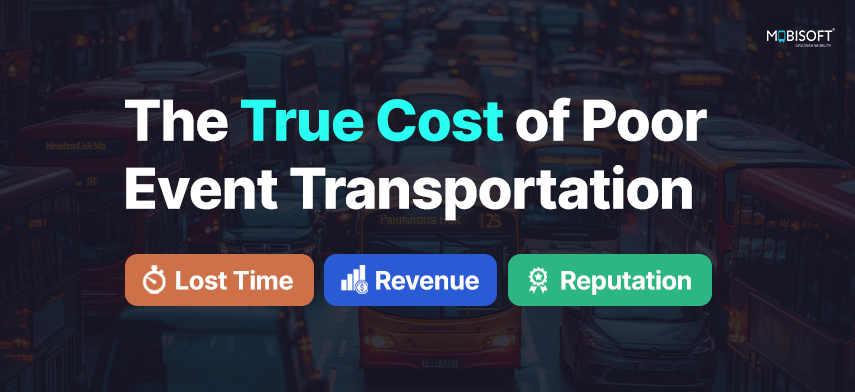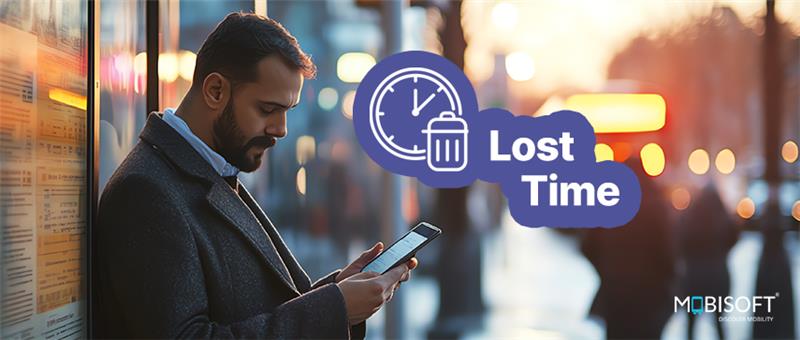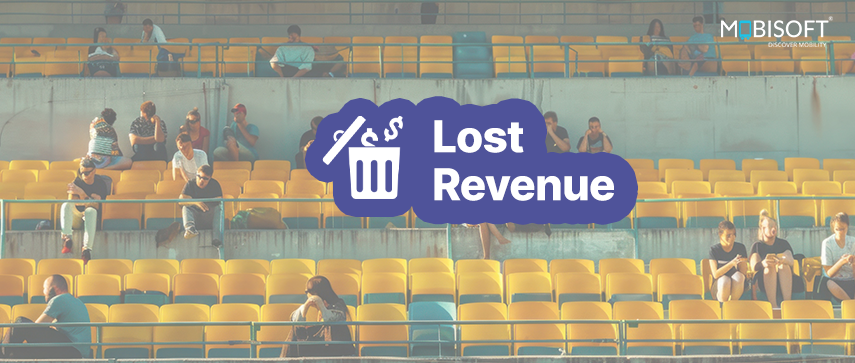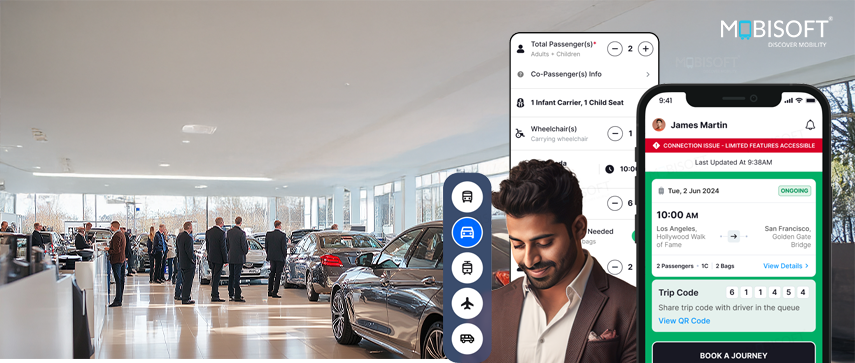
Ever been stuck in traffic before a big event? Or had to wait forever for your ride to arrive? It is frustrating and can ruin the experience before it starts.
Now imagine that happening to thousands of guests at once.
Poor event transportation is one of the biggest event killers. Yet, event planners often overlook it. Long lines, crowded parking, and disorganized shuttles do more than frustrate guests. They throw off schedules, hurt vendor sales, and leave a lasting dent in an event’s reputation. A great event is not just about what happens inside the venue. It starts the moment people leave their homes.
Let’s explore the benefits of efficient event logistics and event transportation solutions.
Why Transportation is Crucial in Event Planning
Many event organizers focus only on ticketing, security, and entertainment. But they underestimate the role of event transportation.
Poor Transportation can:
- Delay performances and schedules
- Reduce attendee satisfaction
- Cause revenue loss due to refund claims
- Harm the event's reputation and future sponsorship deals
- Leads to legal liabilities if safety regulations are not met
Beyond these immediate impacts, event transportation issues have long-term effects, including decreased repeat attendance and lost sponsorships.
For organizing events more efficiently and offering an integrated experience, using the best event booking software can ensure smooth ticketing and transportation logistics from the start.

The Cost of Lost Time: Frustration & Chaos

Time is one of the most valuable resources at any event. If transportation is inefficient, attendees, VIPs, staff, and performers may suffer.
Common Transportation Bottlenecks
Long Queues and Delayed Shuttles
Poor scheduling results in long wait times. Attendees may end up missing key moments of the event.
Traffic Congestion Near the Venue
Without proper integration into city traffic systems, entry and exit points become bottlenecks.
Unclear Signage & Directions
Attendees struggle to navigate parking, shuttle stops, and entry gates, leading to unnecessary delays.
Limited Accessibility Options
The lack of proper transport for disabled attendees creates compliance issues and logistical headaches.
Inefficient Ride-Hailing and Parking Systems
Unorganized parking and ride-hailing zones cause congestion and guest frustration.
For more detailed insights on improving event transportation flow and ensuring seamless guest mobility, check out our blog on Optimizing Event Transportation for Multi-Venue Logistics.
How Time Delays Translate to Bigger Issues
Artist and Speaker Delays
Late arrivals disrupt schedules, forcing last-minute changes and reducing audience engagement.
Sponsor Discontent
Late setups affect advertising visibility and brand activations, reducing sponsor ROI.
Lower Event Attendance
When attendees experience transportation failures, they hesitate to return in future years.
The Cost of Lost Revenue: Direct & Indirect Financial Impact

Poor event transportation doesn’t just waste time; it directly impacts an event’s profitability.
Revenue Loss Due to Poor Transportation
Ticket Refunds and Cancellations
Attendees arriving late or missing key sessions due to transportation delays often demand refunds.
Reduced On-Site Spending
When guests spend more time dealing with event transportation, they have less time for food, merchandise, and other paid activities.
Loss of VIP & Corporate Bookings
High-end attendees and corporate sponsors expect premium transport services; inefficiencies deter future investment. This is where effective VIP transportation management software can make a difference by streamlining the event transportation experience for these key guests.
Increased Operational Costs
Emergency transportation fixes, last-minute shuttles, and additional security staffing add unexpected expenses.
Sponsorship and Partner Implications
Negative Reputation Affects Sponsorship Renewals
If an event is known for poor logistics, brands hesitate to associate with it.
Organizers Must Offer Discounts & Compensation
After a transportation failure, organizers may have to provide refunds, discounts, or additional perks, reducing overall profit margins.
Media Coverage of Transit Issues Can Overshadow the Event
Negative headlines about event transportation failures can dominate the narrative, discouraging future ticket sales.
For large-scale corporate events, having the right corporate event transportation services can alleviate many of these common logistical issues and ensure a seamless guest experience.
The Cost of Lost Reputation: Long-Term Brand Damage

Reputation is everything in the event industry. A single transportation disaster can create negative press and destroy trust among attendees, vendors, and sponsors.
Brand Image & Public Perception
Social Media Backlash
Frustrated attendees quickly share their experiences on social media. You wouldn’t want backlash on Instagram or X (formerly Twitter).
Bad Reviews & Ratings
Poor transportation experiences can lead to low ratings on Google, Ticketmaster, and event review sites.
Declining Media Coverage
Events known for logistical issues struggle to attract positive media attention in the future.
Legal & Compliance Issues
- Failure to manage crowd control and emergency exits can lead to safety violations, lawsuits, and hefty fines.
- Poor accessibility planning can violate ADA (Americans with Disabilities Act) regulations and similar laws worldwide.
- Lack of emergency transit routes could cause disaster in the event of an evacuation need.
The Solution: Smarter Event Transportation Management

The good news is that poor event transportation logistics issues are preventable with strategic planning and technology-driven solutions.
Key Strategies for Efficient Event Transportation
Advanced Route and Traffic Planning
AI-powered traffic management can optimize travel routes dynamically.
Dedicated Shuttle and Ride-Share Partnerships
Collaborating with Uber, Lyft, and local transit services can provide seamless transport options.
Real-Time Tracking and Updates
Live updates on shuttle arrivals, parking availability, and traffic congestion help attendees plan ahead.
Clear Signage and Digital Navigation Support
Improved on-ground logistics reduce confusion and wait times.
Early Ticketing and Pre-Event Travel Surveys
Gathering data on attendee transportation needs helps organizers prepare in advance.
Sustainable Transport Options
Encouraging bike-sharing, electric shuttles, and pedestrian-friendly designs can reduce congestion and environmental impact.
Tech-Driven Solutions for Event Mobility
AI-Powered Demand Forecasting
Predict congestion patterns and adjust transit schedules dynamically.
Digital Check-In and Contactless Entry
Reduces delays caused by long security and ticketing lines.
Geo-Fencing and Smart Parking
Helps allocate parking spaces efficiently and prevents bottlenecks.
For more on the future of AI in event transportation and how it’s transforming mobility solutions for events, don’t miss our blog on AI in Event Transportation: Future of Mobility Solutions.
Conclusion: Prioritize Transportation for Successful Events
Even a well-planned event can fail due to poor event transportation management. Long wait times, traffic jams, and packed parking lots can annoy guests. A poor experience can damage the reputation of your event.
Investing in smart mobility solutions, real-time traffic management, and seamless attendee transit ensures a smooth experience for guests.
Key Takeaways:
- Plan event logistics at an early stage.
- Use data-driven insights to predict and manage transit flow.
- Partner with transportation service providers to ensure efficiency.
- Use technology to provide real-time updates.
- Prioritize accessibility and crowd control to avoid compliance issues.
By treating transportation management for events as a core event component, organizers can enhance guest experiences, maximize revenue potential, and build a reputable brand in the global events industry.




 March 4, 2025
March 4, 2025


